Reaction: No worries in Western capitals
By the end of 2014, his country would full ownership, leadership of governance and development, says Afghan Envoy.
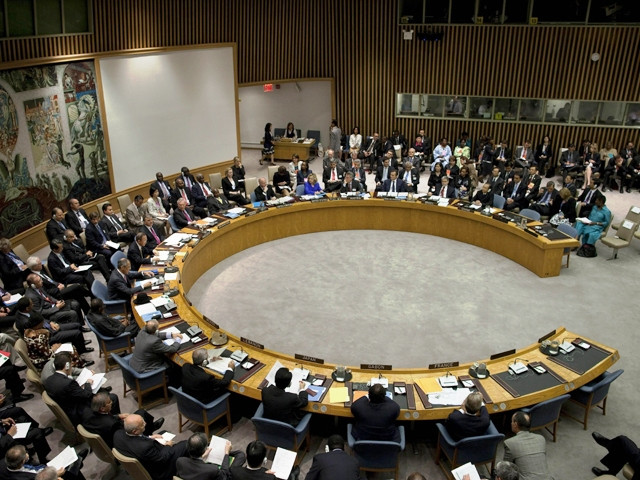
What will happen if Pakistan’s Parliament decides against reopening of supply lines for US-led Nato forces bogged down in a deadly and costly war in Afghanistan? Surprisingly, Washington and its Western allies don’t appear to be much worried.
Western officials have no clue as to whether or not their governments would approach the United Nations, if Islamabad withdraws support from the fight against Taliban insurgents in Afghanistan.
“I don’t know. It’s a question for the International Security Assistance Force (Isaf),” US spokesperson Rayton Knopf told, after the Security Council passed a resolution on Thursday authorising UN presence in Afghanistan for another year.
Isaf has been operating in Afghanistan, under a UN mandate, since 2001 to help create “a secure environment in and around Kabul and reconstruction of the war-ravaged country.” Apparently, this ‘reconstruction project’ is not working out.
Recently, both Kabul and Islamabad raised concerns about the Isaf behaviour amid signals that they may choose a different path to stabilise the region.
Both Pakistan and Afghanistan have raised concerns over how their Western allies are behaving militarily in the region. That includes the incident of burning of the holy Quran copies and massacre of Afghan civilians and killing of Pakistani soldiers by US troops.
In Islamabad, Parliament is reviewing future terms of engagement with the United States, whereas Kabul also seems determined to make changes in its way of dealing with the West.
So how will it go, considering ongoing international efforts to restore peace and security in the region?
The 15-member Security Council – which also includes Pakistan – agreed that UN presence in Afghanistan was a must for another year after the US-led foreign troops hand over security responsibility to Afghan forces and withdraw from the country.
At Thursday’s Security Council meeting, Afghan envoy Zahir Tarin said that by the end of 2014, his country would resume “full responsibility, as well as ownership and leadership of governance and development.”
The Pakistani representative, Raza Bashir Tarar, said that his country was committed to a peaceful and stable Afghanistan and that the two countries ‘are deepening their interaction’ in various fields.
Indian Ambassador Hardeep Singh Puri believed that Afghanistan needed a ‘comprehensive strategy for domestic development,’ and called for the UN member nations to find ways to ensure that Afghanistan did not feel abandoned.
Envoys from Russia and China stressed that the reconciliation process in Afghanistan must be led by the Afghans and that the UN should continue to help that war-torn nation in rebuilding and reconstruction.
For her part, US representative Rosemarie Dicarlo said the upcoming Chicago security summit would be “particularly important in shifting international forces to a support role in 2013”.
She described the recent incident of killing of Afghan civilians by a rogue US soldier as ‘tragic and shocking’ and said that Washington was committed to getting the facts and ensuring accountability.
Addressing the Security Council, secretary general’s special envoy to Afghanistan, Jan Kubis observed that the long conflict had often pushed both Afghans and international forces to the limit.
“A return to stability is critical through the transition to the Afghan leadership and intensified reconciliation efforts,” he said. But neither he nor any diplomat representing his or her nation at the Security Council explained as to how would that happen.
Asked if the UN was ready to play a role in bringing the conflicting parties to the negotiating table for peace in Afghanistan, a UN official at the Department of Political Affairs said he had no answer.
But an Asian diplomat, who has served the UN for the past many years, said: “That’s a problem. The Americans say, leave it to us. The focus should be on Syria, not Afghanistan. This is a tendency that is diving the world community by the world powers.”
Published in The Express Tribune, March 26th, 2012.

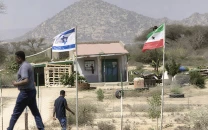
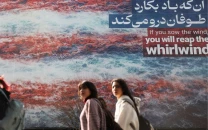
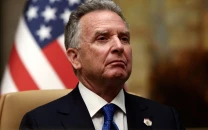
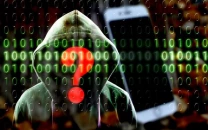
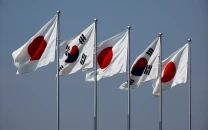
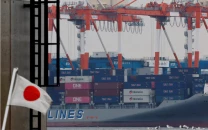












COMMENTS
Comments are moderated and generally will be posted if they are on-topic and not abusive.
For more information, please see our Comments FAQ